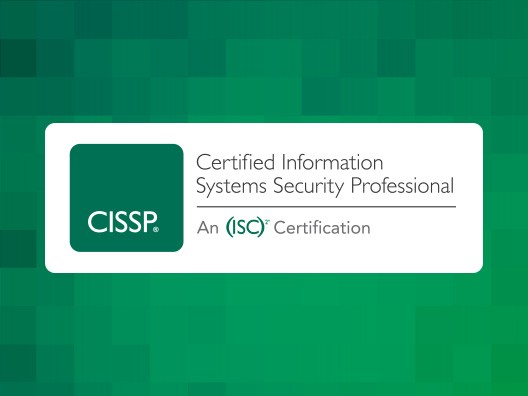The Certified Information Systems Security Professional (CISSP) is one of the most sought-after certifications in the field of information security. Recognized globally, it sets the standard for cybersecurity professionals by validating their skills in managing and implementing security programs. Whether you’re a security consultant, IT director, or security manager, CISSP is a certification that demonstrates expertise and a commitment to securing organizational data. This article will delve into the CISSP certification process, covering its requirements, training, the exam structure, and the associated costs.
What is the CISSP Certification?
CISSP certification in Atlanta GA is offered by the International Information System Security Certification Consortium, or (ISC)². It is designed to certify professionals who possess the knowledge and experience to design, implement, and manage a best-in-class cybersecurity program. According to (ISC)², the CISSP credential is recognized as the most respected certification in the field of information security.
Benefits of CISSP Certification
- Industry Recognition: As one of the most prestigious cybersecurity certifications, CISSP is acknowledged by organizations and governments worldwide. Earning it can significantly enhance your professional credibility.
- Career Advancement: Certified professionals often find it easier to access leadership roles such as Chief Information Security Officer (CISO), IT Director, or Security Consultant.
- High Salary: CISSP-certified professionals tend to earn higher salaries compared to non-certified peers.
- Wide Range of Knowledge: The certification covers a broad range of security domains, which ensures a well-rounded knowledge base in cybersecurity.
- Networking Opportunities: Becoming a member of (ISC)² opens the door to a network of over 160,000 certified professionals.
CISSP Certification Requirements
The CISSP is an advanced-level certification, and not just anyone can pursue it immediately. The certification has specific eligibility requirements related to both professional experience and adherence to a code of ethics.
1. Work Experience Requirements
To qualify for the CISSP certification, candidates must have at least five years of full-time work experience in at least two of the eight domains outlined in the (ISC)² Common Body of Knowledge (CBK):
- Security and Risk Management
- Asset Security
- Security Architecture and Engineering
- Communication and Network Security
- Identity and Access Management (IAM)
- Security Assessment and Testing
- Security Operations
- Software Development Security
If you lack five years of work experience, you can still take the CISSP exam and become an Associate of (ISC)². After passing the exam, you will have six years to gain the necessary work experience to achieve full CISSP certification.
Experience Waivers
Candidates can reduce the work experience requirement by one year if they possess a four-year college degree or hold an approved certification (e.g., CompTIA Security+ or CEH) from the (ISC)² approved list.
2. Endorsement and Code of Ethics
Once you pass the CISSP exam, you must get your qualifications endorsed by another CISSP professional. This endorsement verifies that you have the required work experience. Finally, all CISSPs must commit to the (ISC)² Code of Ethics to maintain their certification.
CISSP Training Options
Preparing for the CISSP exam can be demanding. Due to the breadth of topics covered, adequate training is necessary to increase the chances of success. Thankfully, there are numerous training options available, both online and in-person.
1. Self-Paced Learning
Some professionals prefer to self-study. In this approach, candidates make use of official study materials, books, and practice tests at their own pace.
- Official CISSP Study Guide: This book is highly recommended as it covers the exam’s eight domains in great detail. The latest edition aligns with the current exam syllabus.
- Practice Exams: Tools like practice exams from (ISC)² can help simulate the exam experience.
- Online Study Groups: Joining study groups on platforms like Reddit or LinkedIn can provide you with peer support and advice.
2. Instructor-Led Training
For those who prefer structured guidance, instructor-led courses are available.
- (ISC)² Official CISSP Training: (ISC)² itself offers classroom-based or online instructor-led courses. These training sessions provide an in-depth understanding of each domain.
- Third-Party Training Providers: Numerous companies like SANS, Global Knowledge, and Pluralsight offer instructor-led CISSP courses, both online and in-person. These typically last five to six days and cover all eight domains.
3. Online Training Platforms
- Udemy, Coursera, and Pluralsight: These platforms offer CISSP courses that range from foundational knowledge to exam preparation tips.
- Cybrary: Offers a free CISSP course, making it an excellent option for those on a tight budget.
4. CISSP Boot Camps
Boot camps are intensive training sessions that cram weeks or even months of studying into a few days. This option is great for individuals who want an accelerated path to exam readiness. However, boot camps require candidates to already have a good foundation in the topics before attending, as the fast-paced nature may not be suitable for complete beginners.
CISSP Exam Overview
The CISSP exam assesses a candidate’s understanding of the eight domains in the CISSP CBK. Passing the exam is crucial to obtaining the certification.
1. Exam Format
The exam consists of 125 to 175 multiple-choice questions. These are administered in a computer adaptive testing (CAT) format, which means the difficulty level of questions changes based on your responses.
- Duration: You have up to four hours to complete the exam.
- Passing Score: The passing score is 700 out of 1,000 points.
- Languages: The exam is available in multiple languages, including English, French, German, and Japanese.
2. Exam Content
The exam covers the following eight domains, with each domain carrying a different weight:
- Security and Risk Management: 15%
- Asset Security: 10%
- Security Architecture and Engineering: 13%
- Communication and Network Security: 13%
- Identity and Access Management (IAM): 13%
- Security Assessment and Testing: 12%
- Security Operations: 13%
- Software Development Security: 11%
Cost of CISSP Certification
1. Exam Fee
The cost of taking the CISSP exam varies by region but is typically $749 USD. Candidates may incur additional fees if they need to reschedule or retake the exam.
2. Training Costs
The cost of CISSP training can vary widely, depending on the type of course and provider. Here’s a breakdown:
- Self-Study Materials: Around $100 to $300 for books and practice exams.
- Instructor-Led Courses: These can range from $2,000 to $5,000 depending on the provider and format (in-person or online).
- Boot Camps: Expect to pay anywhere from $3,000 to $6,000 for a comprehensive boot camp.
3. Certification Maintenance
To maintain your CISSP certification, you must pay an annual maintenance fee of $125 and earn 120 Continuing Professional Education (CPE) credits over three years. The CPEs can be earned by attending webinars, conferences, or other educational events related to cybersecurity.
Final Thoughts
Achieving the CISSP certification is a significant career milestone for cybersecurity professionals. The rigorous requirements, extensive training, and comprehensive exam validate your expertise in information security and provide immense career opportunities. While the costs and effort required to earn the CISSP may seem high, the long-term benefits—such as increased career options, higher salaries, and a strong professional network—make it a worthy investment for those serious about advancing in cybersecurity.
By understanding the requirements, choosing the right training, and preparing thoroughly for the exam, you’ll set yourself up for success in obtaining your CISSP certification and opening new doors in your cybersecurity career.



